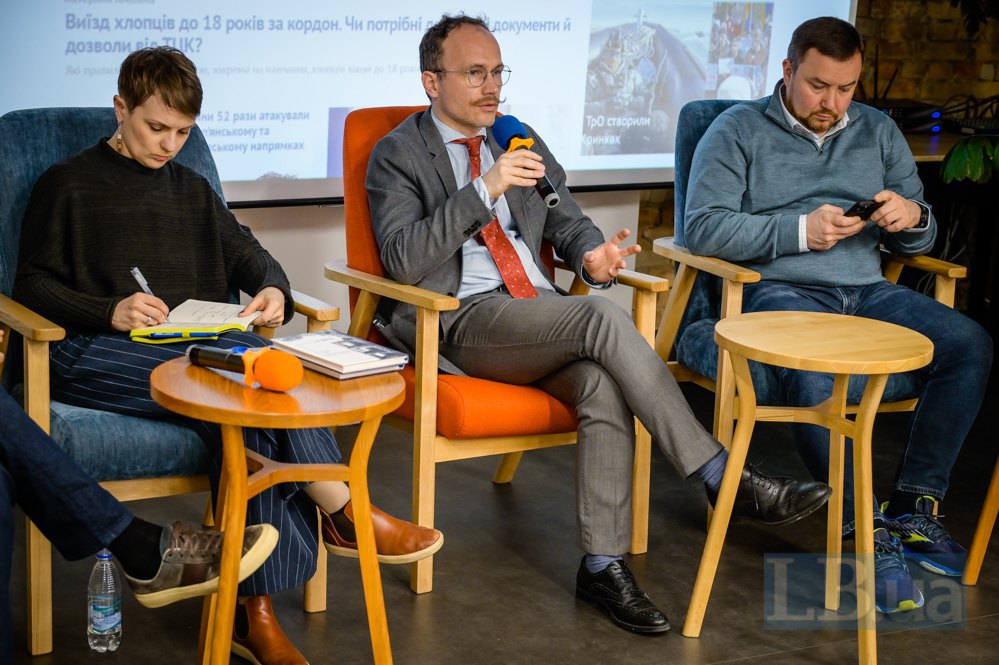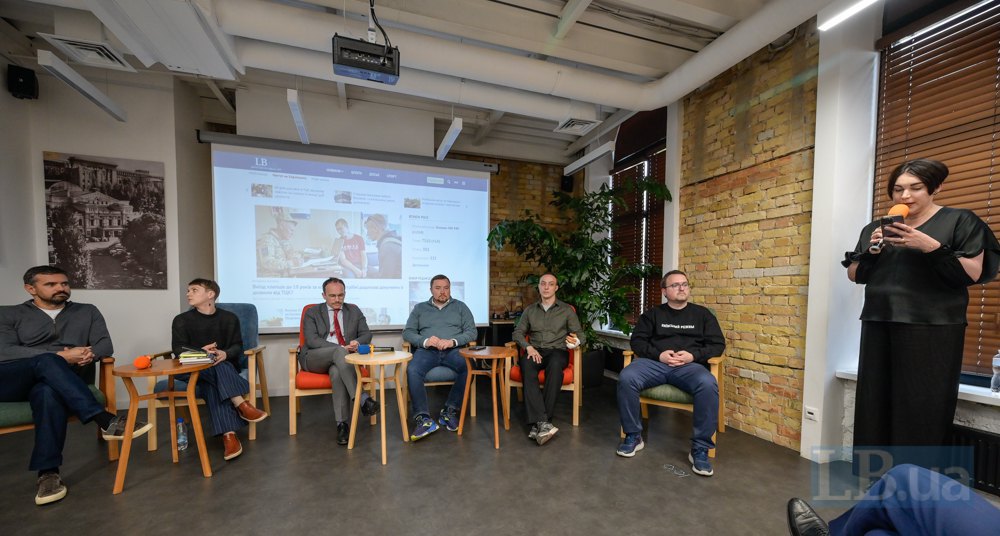
For thousands of years, the world has had the concept that the victors are not judged, says Justice Minister Denys Malyuska, but Ukraine is trying to move away from it now, during the war, and has developed a number of mechanisms to bring Russian war criminals to justice. Perhaps not all of them will be effective, the minister notes, but the more of them we have, the more trump cards we will have in the negotiations.
Frozen assets
Part of the damage caused by the Russian Federation can be compensated even before the end of the war and regardless of how it ends, the Minister of Justice believes.
"There are funds of the Russian Federation frozen abroad, primarily sovereign funds, but there are also funds of state-owned companies and Russian oligarchs (compared to sovereign Russian funds, this is a very small part). Accordingly, we are working to ensure that the frozen funds of the Russian Federation reach Ukraine - either to citizens or legal entities, the government, or a local sovereign department that has suffered as a result of the war," said Denys Malyuska.
According to him, the relevant decision is to be made in June at the G7 Summit in Italy.
"Most likely, it will be a political decision. It may not be final, but transitional. The first step will be taken with regard to the proceeds from Russian assets - to transfer them in the interests of Ukraine or use them in some other way. Or to sequester the income through securities for a certain number of years in advance and pay these profits now, transferring to us the funds from the profits that will be received over the next 10, 20, 30 years," the minister added.
He noted that Ukraine is not abandoning the idea of full confiscation of assets and will continue to insist on it.
"We can definitely say that in the coming months, Russian money will start working for Ukraine. That is, some part of economic justice, albeit small, will be achieved without waiting for the end of the war," the head of the Ministry of Justice said.
International Register of Losses
The International Register of Losses was launched on 2 April on the basis of a UN General Assembly resolution. From now on, Ukrainians whose property has been destroyed or damaged by Russian aggression can submit an application. In the first days, there were more than a thousand of them, says Denys Maslov, MP and chairman of the Verkhovna Rada Committee on Legal Policy. Hundreds of thousands are expected, he added, as more than 600,000 people have registered in the national system.
The problem with registers, said Ihor Liski, businessman and chairman of the supervisory board of EFI Group, is that they are designed for individuals only.
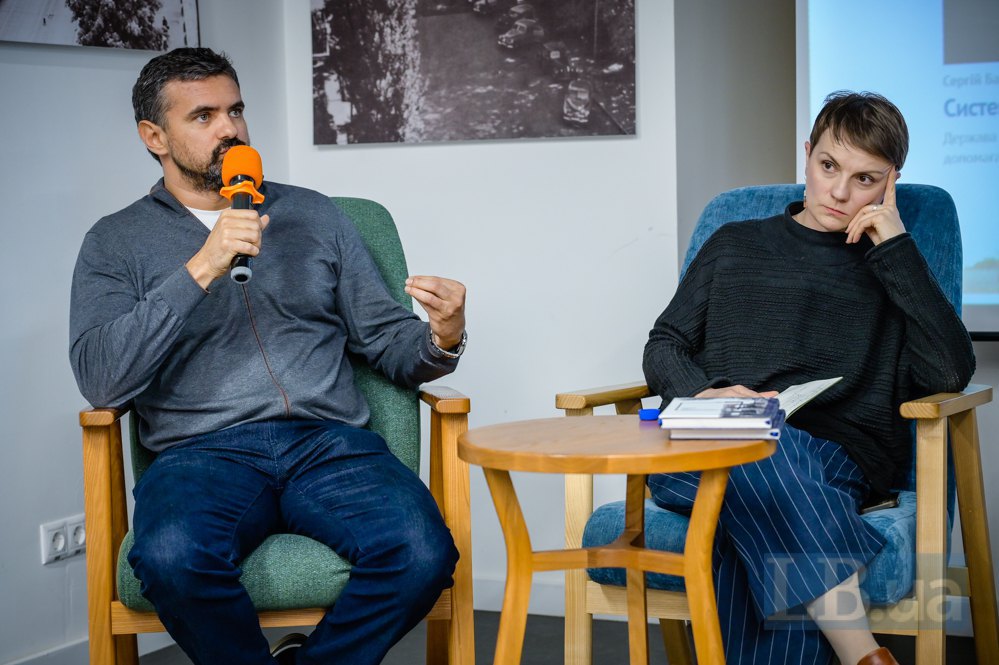
"As a person who faced the losses and injustice of war a little earlier than the rest of the country - back in 2014, when we lost everything in Luhansk and Donetsk, from housing to businesses (Ihor Liski from Luhansk - Ed.), I know that there is still no legal decision on any compensation for lost, destroyed, seized property," he said. In 2022, two Russian missiles destroyed his company by 70 per cent, the businessman said, and it is still unclear how to record this, where to apply, what legal path is possible to record and compensate.
Commenting on this, Minister of Justice Denys Malyuska said that in the coming months the international register of losses will be opened for business. The exact date is still unknown, as there is still a lot of "technical work" to be done.
"The register is being opened in stages. We opened residential property first because we have a Ukrainian register where this data is collected, so filing applications and understanding what to submit are very simplified," the minister said. He advised collecting evidence of property destruction as much as possible, involving a forensic expert and appraiser in the case to determine and record the amount of damage.
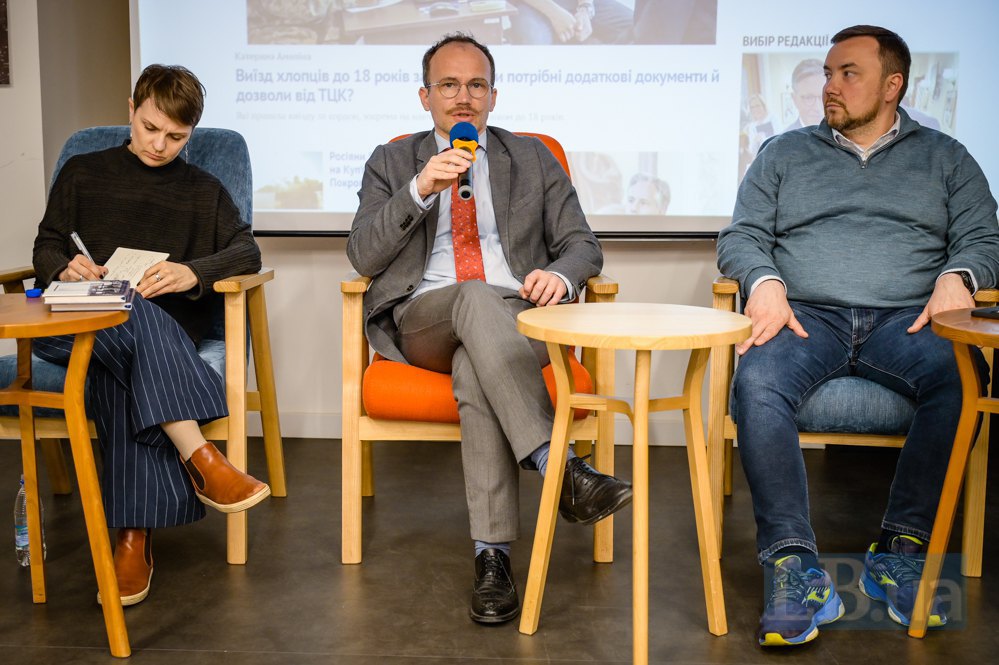
Denys Maslov added that Ukrainians can currently count on compensation only theoretically and it is not known when. To do this, the Council of Europe should set up a compensation commission to consider such claims and determine the amount of damage and the priority of their payment. But it is already clear, the MP notes, that the frozen assets will not be enough to pay compensation.
"Let's face it. According to various estimates, we have 280-300 billion in frozen assets. No one will even say a specific figure. We are to be allocated 3.5 billion in excess revenues from assets and taxation, which will primarily go to defence - 90%. We have destroyed about 150,000 infrastructure facilities, including residential buildings. This is a colossal amount. I think even the 300 billion may not be enough.
But we must not forget that the greatest evil is the damage to people's lives and health. And if we can even talk about compensation for the murder or injury of a person, given the number of cases that have already occurred, I can say for sure that no amount of frozen money from the Russian Federation will be enough," the head of the Legal Policy Committee stressed.
According to Justice Minister Denys Malyuska, businesses should not expect any material compensation at all unless we get access to Russia's sovereign assets or win the war fully on our terms.
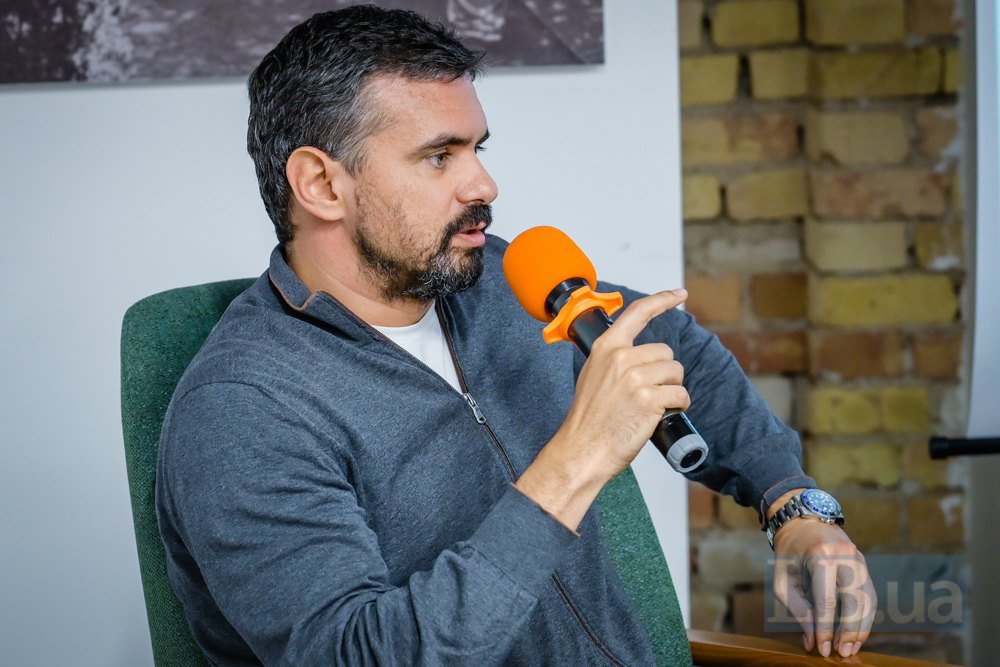
Instead, Ihor Liski noted that the issue of fixing and compensating business losses is not primarily about money, but about the attitude of the state.
"We don't want to see the state taking care of bridges, schools, hospitals, hospitals, essentially buildings, and forgetting about its citizens. First and foremost, citizens, first and foremost, entrepreneurs, this builds trust in the state.
Even if there is no physical compensation, or if it is the seventh or tenth stage, or in the form of benefits or other conditions, the principle of this decision is important for those who risk building and creating something in the country... This attitude is very important because it shapes the attitude to one's land, to one's country, to one's passport, to one's flag. And it is very much related to justice," Liski said.
Sanctions against Russia
The number of sanctions imposed on Russia is unprecedented, said Vladyslav Vlasyuk, advisor to the head of the Presidential Office, more than against North Korea and Iran, which have been living with restrictions for decades. The problem is that sanctions against Russia are not recognised by the UN, which allows, for example, India to buy Russian oil and China to supply microelectronics to Russia.
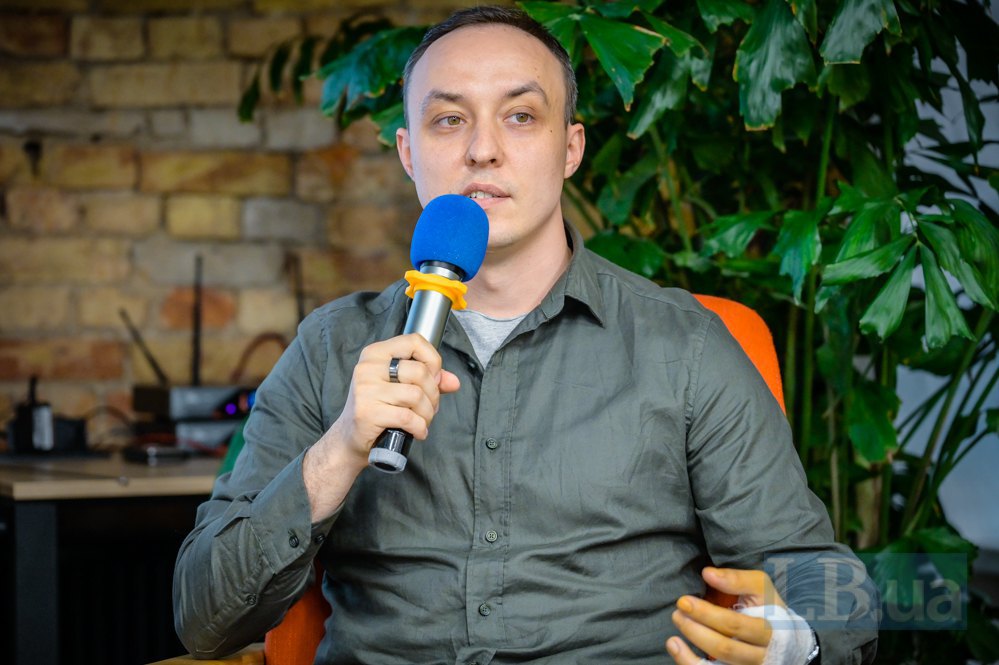
Despite this, Vlasyuk notes that 40+ countries are complying with sanctions restrictions. And Russian aggression has made Ukraine much more important in many issues of world politics - we provided 40% of the information, evidence and recommendations for the latest sanctions packages.
Due to the sanctions, Russia is losing 170 billion, the OP representative stressed, GDP growth in Russia is 2-3% (and this is because of the good global oil price environment), Gazprom has become unprofitable, and entire industries: aircraft construction, woodworking, parts of oil refining, and mechanical engineering, where the main market was the European Union, have simply disappeared.
"Russia's imperial grandeur suffers greatly when Russians have to beg not even China or the Emirates, but other countries in the region to help them buy, supply or conduct some kind of transaction not even in yuan, but in third or fourth currencies. This is where Russia has found itself in the context of the global economy as a result of its civilisational choice. There is no investment there now," Vlasyuk explained.
However, he stated: Russia still makes a lot of money from oil.
"The difference in earnings from crude oil exports in February was 10 billion, in March - 17 billion, in April - 17 billion. That is, plus 7 billion, because they have again adapted to oil sanctions. And we are talking about it, we are being heard, we will see," said Andriy Yermak's advisor.
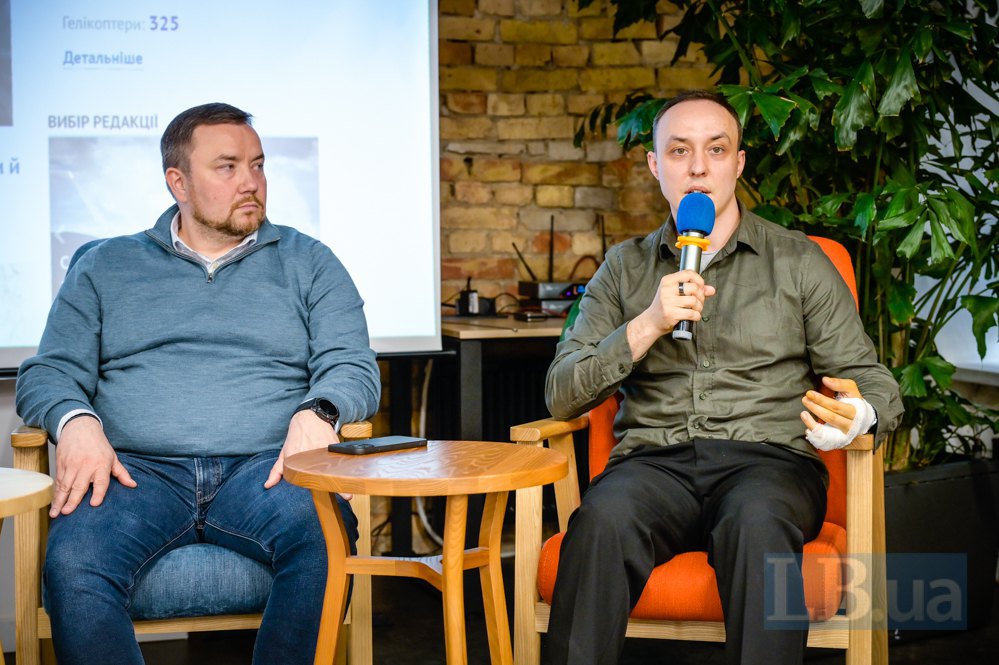
In addition, European companies that remain on the Russian market pay huge taxes. European banks paid 800 million euros in taxes in Russia last year, which is twice as much as in any other year, Vlasyuk said.
At the same time, he stressed that the sanctions imposed on Russia have provoked a serious shift in many economic processes. For example, the countries of Central Asia are making incredible profits. Economic and trade flows are being redirected.
"This is a shake-up that has taken place and continues to take place. And believe me, our position and the position of many partners is that there are not enough sanctions, there will be more and more sanctions," said Yermak's advisor.
However, partners often receive requests to lift sanctions against Russia, most often on the initiative of the Hungarians and Austrians, Vlasyuk said.
"It's good that we are involved in the possibility of sanctioning someone or getting sanctions lifted on someone. It rarely becomes public, but quite often our partners, in particular, the UK and the EU, ask us for help: they receive letters to lift the sanctions they are keeping, but they lack evidence, then we help - and these sanctions stand... But sooner or later, the question of lifting sanctions and the conditions under which they will be lifted will arise. It's a matter of time," he concluded.
Special Tribunal for Russia
The Special Tribunal for the Crime of Aggression is the only mechanism to bring to justice and punish representatives of Russia's top political and military leadership for planning, launching and waging an aggressive war against Ukraine, said Anton Korynevych, Ambassador-at-Large of the Ministry of Foreign Affairs of Ukraine.
However, its creation is complicated by the fact that it is an institution that has not existed for almost 80 years, and the Nuremberg and Tokyo military tribunals, which tried the highest representatives of the political and military leadership of the aggressor state, have never dealt with the crime of aggression.
"Therefore, it is important to create a truly successful case and develop this tribunal. It is very important that the movement along this track is not only about discussions, not only about talks, but also about concrete work, concrete results that we can feel today," explained the Ambassador-at-Large of the Ministry of Foreign Affairs.
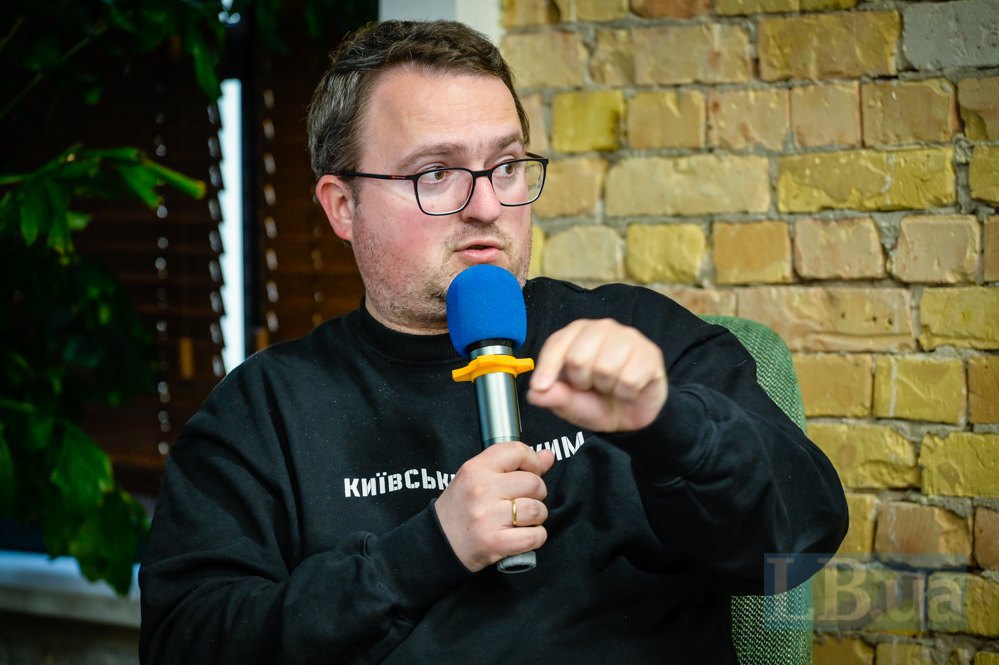
According to him, the International Centre for the Prosecution of the Crime of Aggression against Ukraine (ICPA) has been operating in The Hague since July 2023.
"This is the first international initiative to investigate the crime of aggression since the Second World War. And today, more than 20 prosecutors and investigators from several countries, including Ukraine, the United States, Poland, and the Baltic States, meet monthly in The Hague on the basis of Eurojust to work out a common framework for investigating the crime of aggression," Korynevych said. This centre will develop materials to be used in court.
"We have a Core Group of 40 states and several international organisations that met last week in Vilnius, and we already see a framework for how to set up a tribunal... Now it is important to fill it with legal content. We need to work out the basis - a draft charter for the tribunal that will satisfy us as citizens of Ukraine in our desire for accountability and which is also supported by our key international partners," the Foreign Ministry ambassador said, noting that these are already tangible interim results.
Assistance from other countries in criminal prosecution
According to Denys Malyuska, the criminal block has many components in the national, international and jurisdictions of our allies and partners.
"This includes the activities of the International Criminal Court. And also the arrest warrant for Putin. A huge step forward. A crazy one. The radicalism and coolness of which, however, can be levelled out if the ICC issues a warrant against Israeli leaders. Then the image will be a little less good than it looks now... So far, the president of a country that is a permanent member of the UN Security Council is wanted. This is a wonderful, fantastic result. He is extremely restricted in his movements and has rather negative prospects," Malyuska said.
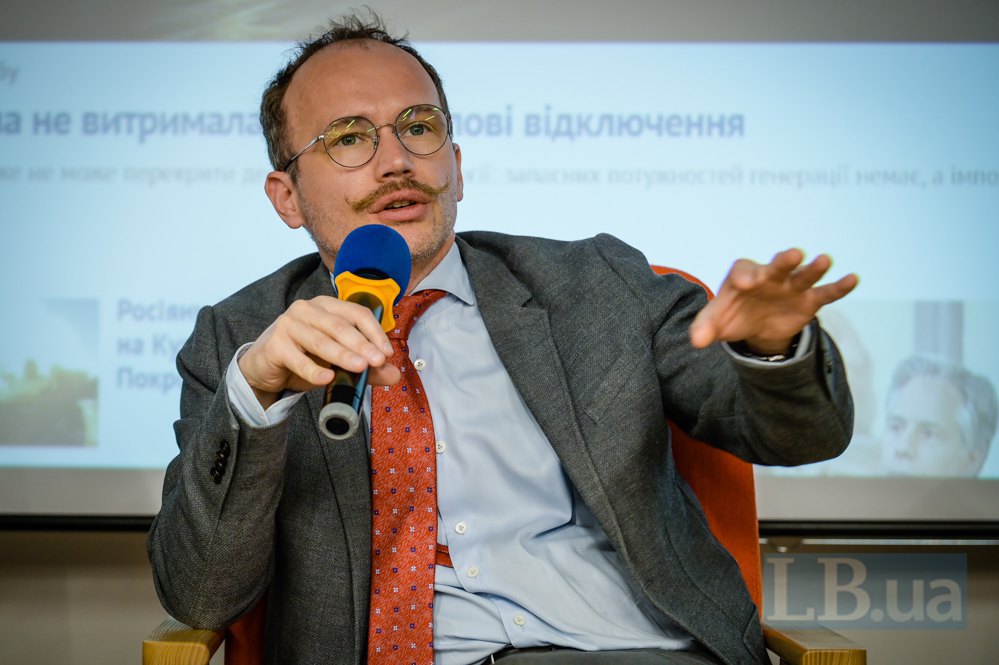
According to Nataliya Humenyuk, founder of the Public Interest Journalism Lab and The Reckoning Project, Ukraine should engage partners in a joint investigation of war crimes committed by Russia, as the number of war crimes - about 130,000 recorded by the Prosecutor General's Office, she said - simply leaves no chance of doing it on its own.
At the same time, Nataliya Humenyuk shared the details of a high-profile case - a lawsuit filed by a Ukrainian against the Russians who tortured him in an Argentine court.
"We filed a lawsuit with the Federal Court of Argentina because, firstly, this country has the relevant legislation. Secondly, thanks to the junta trials (the largest after the Nuremberg trials), it has experience in investigating crimes, not just torture, but torture by electric shock," said Nataliya Humenyuk. In addition, Argentina is respected in international justice.
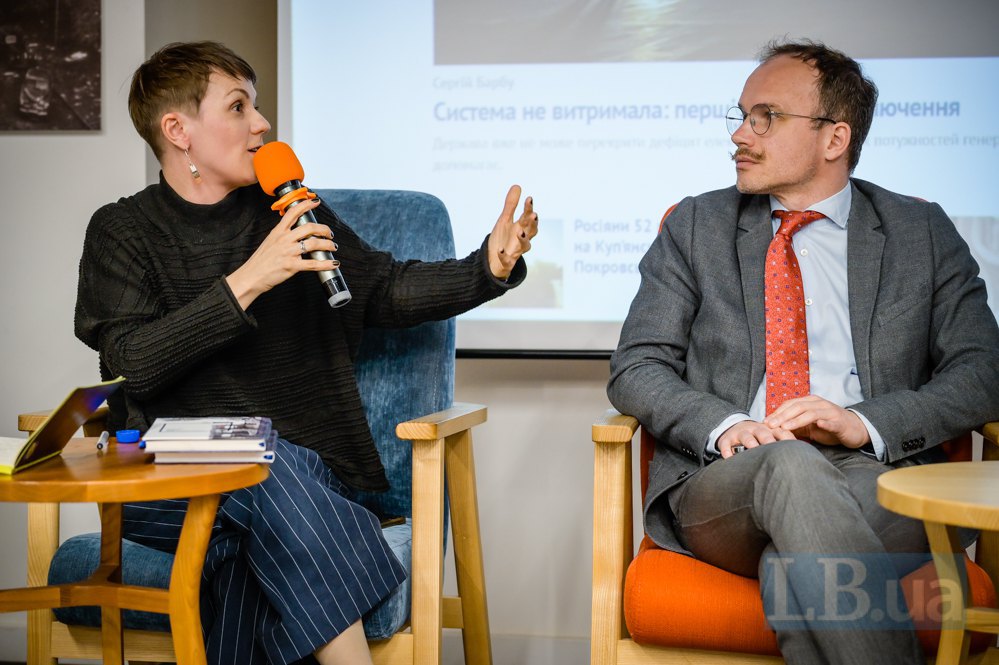
And this case, the journalist stressed, provides an opportunity to show Russians that they will be caught anywhere.
"Now more than 90 countries have visa-free travel with Russia. In Latin America, they feel quite free. And the fact that something like this can happen on the territory they consider theirs is important, because they don't know who the charges are against yet," Humenyuk said.
This case, she added, is also important for Argentina, which, without financial resources, can help Ukraine in its own way. And for the man from Ukraine, the plaintiff, as he communicated in Argentina with victims who had experienced torture and realised how important it is to unite in such cases.
Every crime committed by the Russians should be recorded, Nataliya Humenyuk believes, because if proceedings are not opened, another crime is possible, the crime of denial, when they say it did not happen. Obviously, there will be no verdicts in all cases, and in many cases there will be insufficient evidence to punish, which means that there will never be complete justice, but we must strive for it. And other countries could help with this.
In addition, Justice Minister Denys Malyuska noted, "the more we dig up now, the more spokes we put in the wheels of the Russian Federation, the better off we will be later."
"The more sanctions, the more restrictions, the more frozen assets, the more criminal proceedings and lawsuits, the more trump cards we have up our sleeve to at least bargain for something. If we don't have this, then it's a one-way game: we've given up, we've raised our hands, we're learning the Russian national anthem and rhymes in Russian. There is no other option," Malyuska is convinced.
